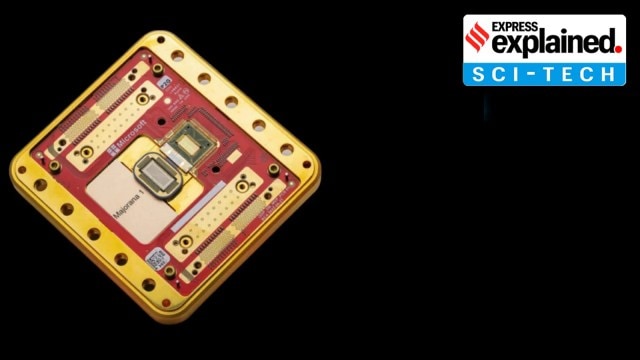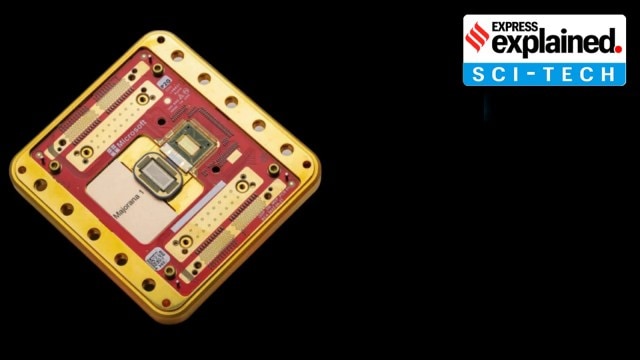Microsoft’s Quantum Leap: New Chip Could Accelerate Quantum Computing Development
Microsoft recently announced a potential breakthrough in quantum computing, a field that has generated significant excitement, much like the advancements in artificial intelligence (AI). The company claims to have developed a new chip capable of drastically shortening the timeframe for viable quantum computer development, potentially moving the timeline from decades to just a few years.

Essentially, Microsoft suggests it has found a novel approach to creating qubits (short for quantum bits). Qubits are the fundamental units of data storage and processing within quantum computers. Furthermore, Microsoft asserts that its method produces more stable qubits than existing approaches, a critical development. If confirmed, this could be a major turning point not just in quantum computing but also in physics, as the process involves working with a physical state that has been theoretically possible but never before achieved. The significance of this claim has led to some initial skepticism within the scientific community.
What is Quantum Computing?
Quantum computers are fundamentally different from traditional computers, not just faster versions. They operate on entirely different principles, handling and processing information in a unique way. They utilize the special properties exhibited by tiny particles, even smaller than atoms.
A key property is superposition, where a quantum particle can exist in multiple states simultaneously. This allows quantum computers to supercharge calculations. Traditional computers rely on billions of transistors, each handling one bit of information (0 or 1) at a time. Quantum computers use particles like electrons, allowing qubits to exist in both 0 and 1 states at the same time – and in every combination of 0 and 1 simultaneously. Interactions between qubits facilitate parallel processing, which is impossible in standard computers, where data is processed in a linear, step-by-step manner.
Challenges in Quantum Computing
Quantum computing faces significant hurdles. The quantum behavior of a particle collapses into normal behavior when observed or measured, which is inherent to the nature of these extremely small systems. External disturbances, like temperature or pressure fluctuations, also cause the system to collapse. Maintaining qubit stability is thus a major concern.
Another challenge relates to the integrity of the output. Multiple qubit states can lead to multiple potential outcomes, but only one is the desired result. Getting the quantum computer to deliver the correct outcome, rather than millions of other possibilities, is another challenge. Disturbances in any qubit can lead to calculation errors, and algorithms must correct for these, which necessitates more qubits. Hence, more stable qubits result in fewer errors.
Microsoft’s Innovation
Different designs exist for quantum computers. A key differentiator is how qubits are created and controlled. Microsoft claims its novel process yields more resilient qubits, representing a significant advancement over other platforms in terms of scalability, error generation, and error correction. The company believes this opens the path to creating a million-qubit system within a few years. By comparison, quantum computers utilizing alternative methods have only just approached 1,000-qubit systems. Quantum computers must control and operate systems with a million or ten million qubits to address real-world problems.
Professor Arindam Ghosh, from the Indian Institute of Science in Bengaluru, stated that, “One million physical qubits would roughly scale down to about a few thousand (error-corrected) logical qubits in the existing systems because of the need for error correction. If what Microsoft is claiming is correct, and the quality of qubits is indeed superior, then the errors are expected to be smaller, and this ratio of physical to logical cubits would be much higher. This would significantly move the needle in the development of quantum computers.” He acknowledged the skepticism surrounding the announcement, adding, “What Microsoft is claiming to have achieved is very big and significant. It is also very difficult. Scientists have been trying to create this new physical state for a long time but have not succeeded. Any big breakthrough does invite greater scrutiny, and that is what seems to be happening. There is nothing surprising about this.”


